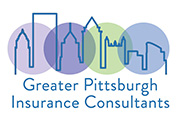Master Association Insurance

Master Association Insurance for Condo Owners: Understanding and Navigating the Maze
Condominium living brings a unique blend of community, convenience, and shared responsibilities. As a condo owner, you’re not just purchasing an individual unit but also buying into a collective with its own set of rules, regulations, and protections. Central to these is the concept of Master Association Insurance.
But what does it mean for you? Let’s dive deep into the often complex world of condo association insurance and the items detailed in condo association legal documents.
What is Master Association Insurance?
Often called the “master policy,” this insurance covers common areas shared by all condominium residents—think hallways, lobbies, pools, and gardens. It protects both property damage and general liability for incidents in these shared spaces.
What’s Typically Covered?
-
Buildings and Structures: In most cases, this includes the main building, any outbuildings, and sometimes even individual units up to the walls.
-
General Liability: If someone gets hurt in a common area, this part of the master policy should kick in.
-
Directors & Officers Liability: Protects board members from lawsuits related to decisions they make on behalf of the condo association.
Asset Coverage for Capital Replacements
Master policies should also account for the replacement of significant assets. Whether it’s a major overhaul of an elevator system or replacing the communal pool’s filtration unit, these substantial costs need coverage.
Protection Against Theft by Officers and Directors: Regrettably, internal theft or fraudulent activities can occur. Master policies often have provisions known as “Fidelity Bonds” or “Crime Insurance” to protect against dishonest acts by those in authoritative positions.
What’s Not Covered by Master Association Insurance?
It is super important to be familiar with the coverage not provided by the Master Association Insurance Policy for your condo. For example, some policies cover what was delivered by the builder to the original owner, Be sure to research this completely and reach out to experts for assistance. The specifics of what isn’t covered can vary, but commonly:
-
Personal Property: Your furniture, appliances, personal belongings, etc.
-
Interior: Including but not limited to flooring, fixtures, cabinetry, and sometimes even the internal walls.
-
Individual Liability: If someone gets injured within your unit, that’s typically on you.
-
Loss Assessment: If the association’s policy doesn’t fully cover a claim, condo owners might be asked to chip in.
Items in Condo Association Legal Documents
These documents (like the Declaration of Condominium or Bylaws) will define the specifics of:
-
Insurance Responsibilities: Detail what the association’s policy covers vs. what the individual owner is responsible for.
-
Claims and Deductibles: In case of damages, who pays the deductibles? It could be the association or individual owners, depending on the cause and location of the damage.
-
Alterations & Improvements: Does upgrading your unit change your insurance responsibilities?
Potential Issues & Considerations
- Underinsurance: Ensure the association’s policy provides adequate replacement cost coverage. Unit owners need to make up the difference if it falls short.
-
Understanding Deductibles: Some associations might have high deductibles, which can be passed on to the owners in certain situations.
-
Overlap and Gaps: It’s possible to find areas where your personal condo insurance and the master policy might overlap—or, more problematically, leave gaps.
Need more information?
Being a conscientious condo owner means understanding your responsibilities and the associations. By comprehending the interplay between individual and master policies, you can better protect your investment and ensure peace of mind.
Always consult with an insurance expert and, if possible, a legal professional when reviewing your condo association’s documents. Knowledge is your best defense against potential pitfalls.
At Greater Pittsburgh Insurance Consultants, we will happily review your needs and the specific considerations of your unique situation. Contact us today for our assistance. For more information on the specifics of condo insurance, see our blog – Condo Insurance Unveiled: Know the Difference and Discover its Importance.
Disclaimer: This blog post aims to deliver general information. You should not interpret it as legal or financial advice. As everyone’s situation varies, please consult your insurance advisor for advice that suits your unique circumstances.
